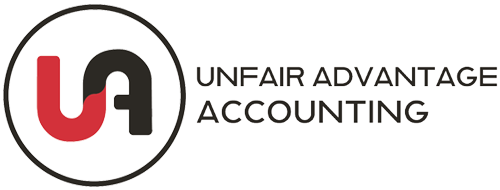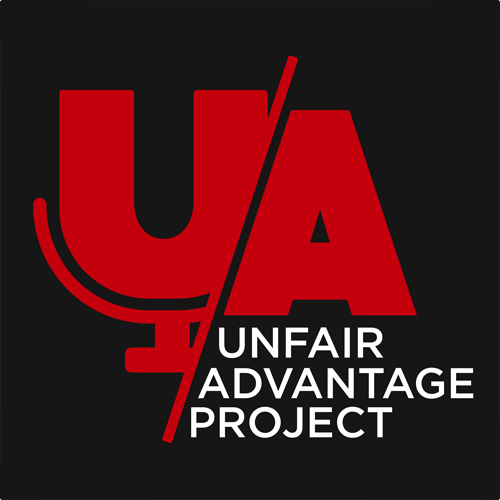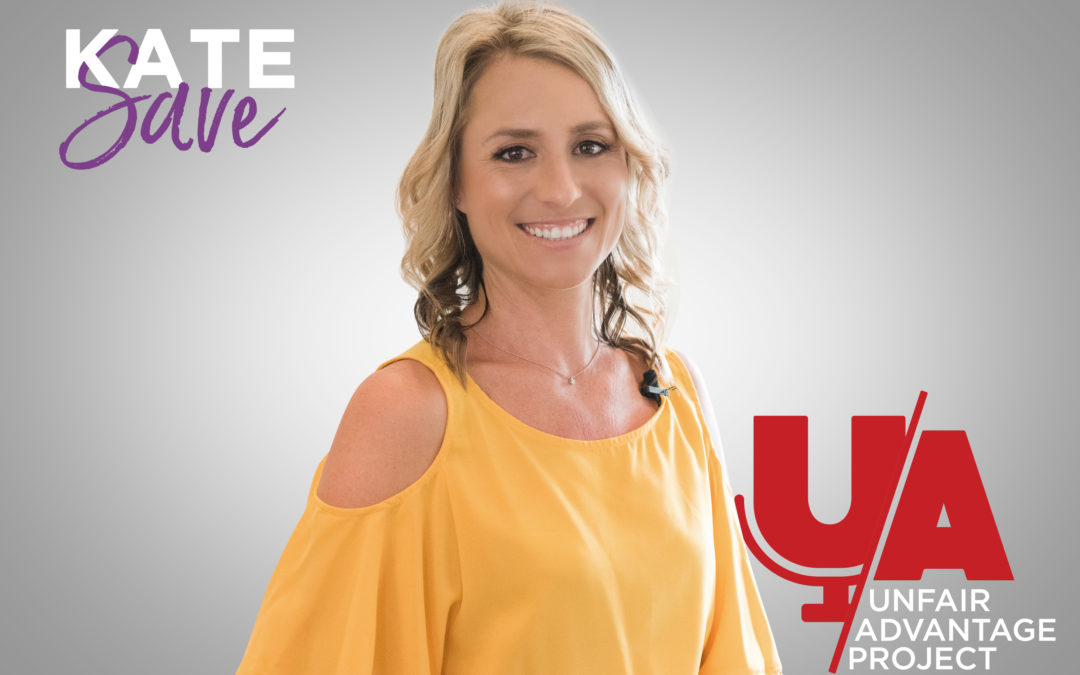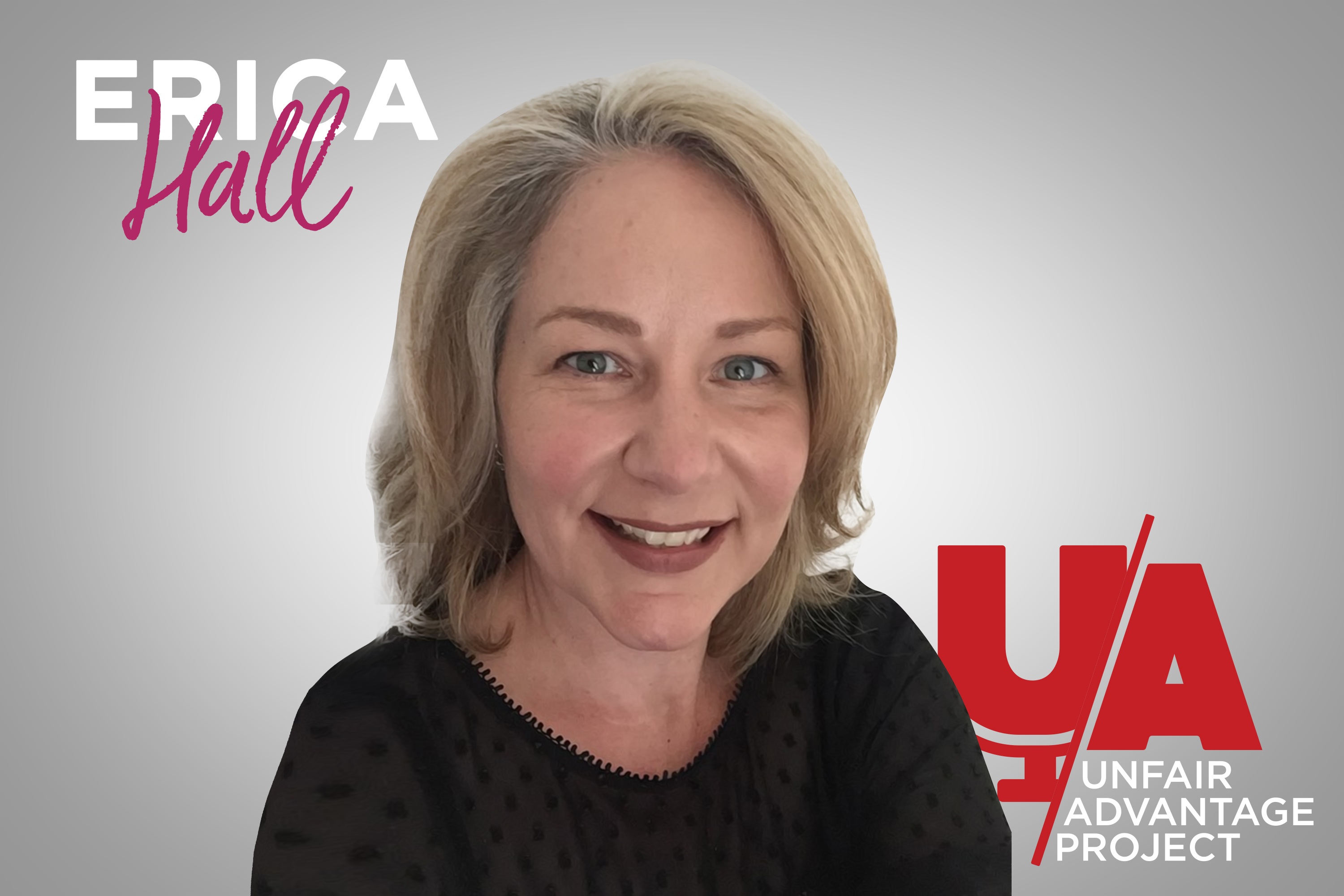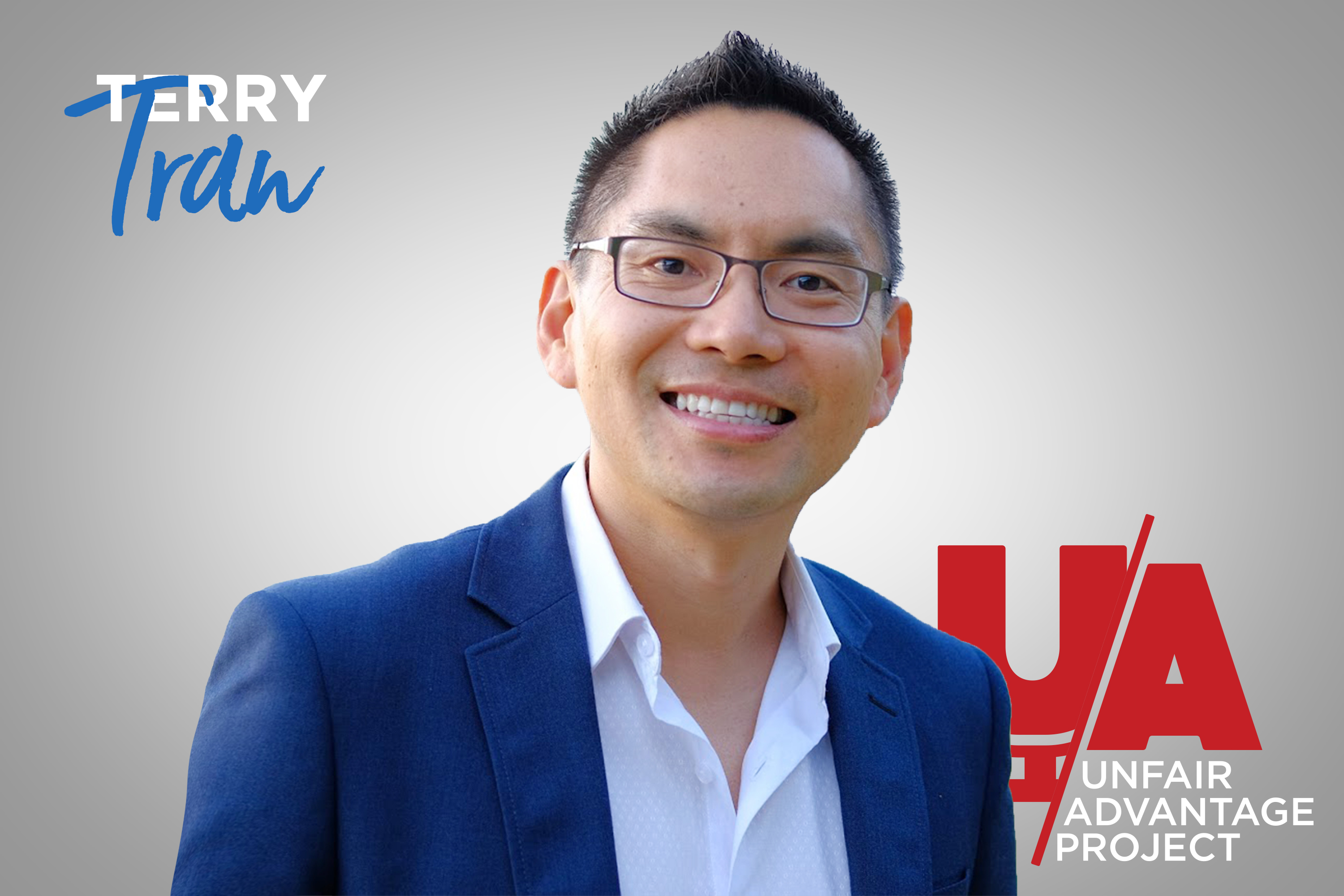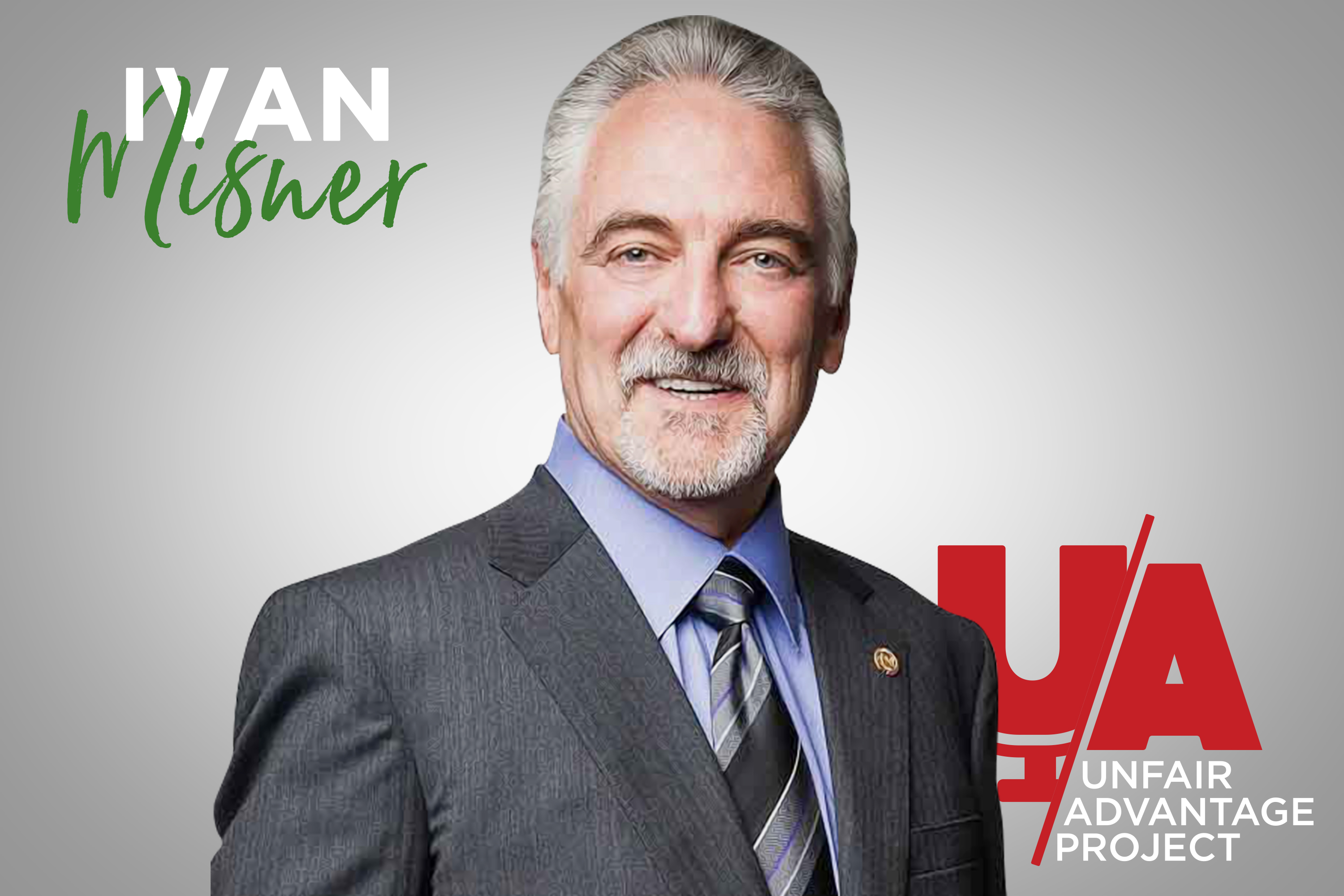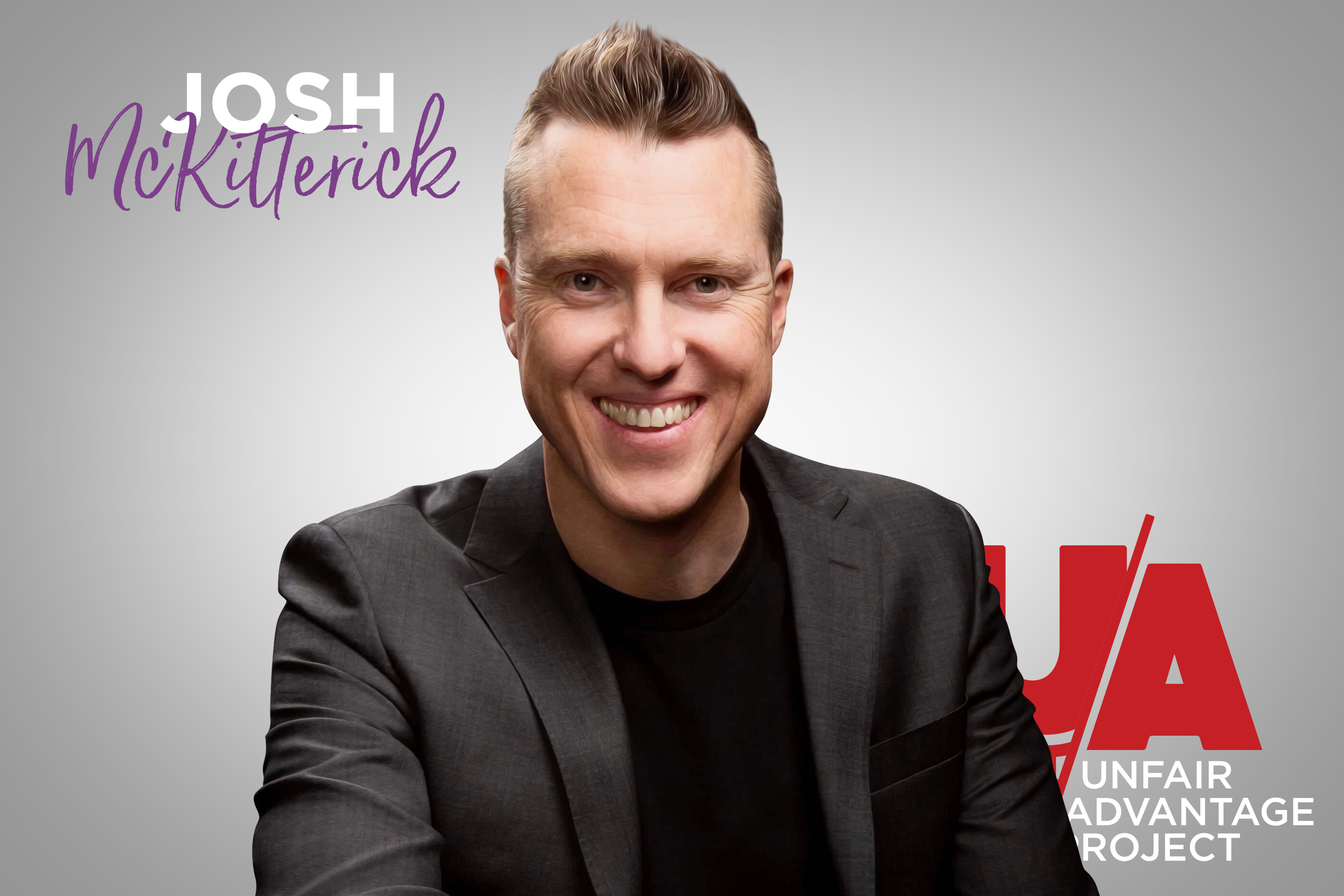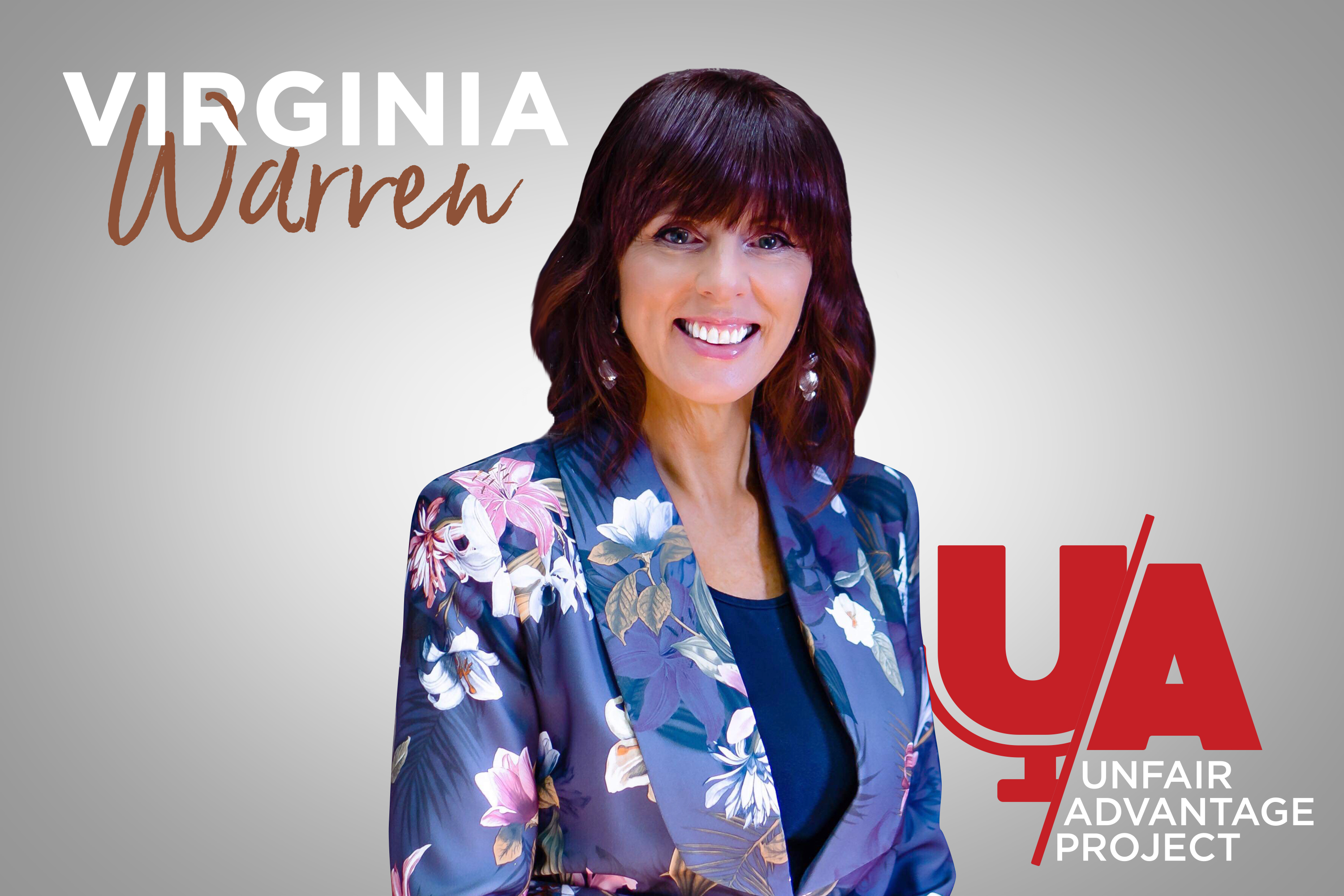Podcast: Play in new window | Download
Subscribe: Apple Podcasts | Google Podcasts | RSS
Shownotes:
Kate introduces Be Fit Food. [01:55]
What made Kate and Be Fit Food so popular? [04:02]
Kate shares about her home recipes. [06:10]
Why rapid weight loss is dangerous? [07:39]
What happens when your liver shrinks? [08:41]
Kate tells what food you should eat. [13:17]
What motivated Kate’s Shark Tank stint? [15:12]
Kate talks about her learnings from the show. [17:52]
Why ask the who question instead of the how question? [20:59]
Kate explains why you should not be afraid to hire people better than you. [22:16]
They talk about why employees should be client-focused. [25:04]
What is Kate’s take on work life balance? [31:01]
Were there times that Be Fit Food experienced failure? [35:52]
How did Kate manage it? [38:26]
Kate discusses how did they end up buying the wrong customer. [40:19]
Kate shares some of the harsh criticisms they got from customers. [41:10]
Does Kate’s husband eat the “healthy” food she prepares? [44:22]
How different is Kate and their business now from two years ago? [45:51]
Kate gives some pieces of advice. [49:13]
Follow Kate Save
Website – https://bit.ly/2I4xwTP
Facebook – https://bit.ly/2NMen8D
Instagram – https://bit.ly/2LzPIGD
Youtube – https://bit.ly/2mJppzY
Narrator: Welcome to the Unfair Advantage Project – unique perspectives, practical insights, and unexpected discoveries directly focused on giving you the unfair advantage. Introducing your hosts, Nadia Hughes and Terence Toh.
Terence: Hi! Welcome to the Unfair Advantage Project. I’m Terence Toh, I’m the Founder and Managing Director of StrategiQ Corporation and I’ll be one of your host today. And we’ve got Nadia as well.
Nadia: And I’m Nadia Hughes, I am an Accountant and Financial Advisor from Smart Business Solutions and I am very happy to be here.
Terence: And also, hopefully happy to be here we’ve got Kate Save. So, thanks for coming along Kate. Kate is an accredited practicing Dietician, Exercise Physiologist and Diabetes Educator.
Kate: Yes!
Terence: And probably more famously one of the founders?
Kate: Yes. One of the founders.
Terence: One of the founders of a company called Be Fit Food. Yeah. So, thanks for being here today.
Kate: Well thank you for inviting me. It’s very exciting to get to talk about the what I’ve done, I guess in the last couple of years with Be Fit Food.
Terence: Yeah. And it’s been quite a story. I think you were talking earlier and you said it’s been going for about three years?
Kate: Yeah. Three years overall but I guess that’s just from when we first started selling food online. But back at that stage we really had no idea what Be Fit Food was going to become and the way we ran the business was very different to how we run it now. It genuinely was a hobby for Geoff and I. So, Geoff being a Bariatric Surgeon and having an extremely busy clinic, and myself having multiple clinics and hospital contracts across Mornington Peninsula. And I had a team of up to 23 staff in my own company for a while. and we’ve pulled it back a little bit. But we really saw Be Fit Food as a hobby somewhere where we could bring to life this concept of having this nutritionally complete, rapid weight loss food program that would help both without bariatric surgery patients but particularly for just overweight patients or people wanting to lose that five kilos in two weeks. And as after Shark Tank, I guess that’s when it all changed.
Terence: Things change really pretty rapidly I guess. Question for you which is maybe different, hopefully, to anything you’ve been asking before. How would you describe what you do without using your job title?
Kate: What don’t I do would be the key thing. If a delivery arrives will be unpacking boxes off the track and putting them into our 40-foot freezer. If we run out of toilet paper, I’ll be getting the toilet paper. If someone didn’t get their yogurt pot in their delivery I’d be driving to Northcott to drop off a yogurt pot. There’s no limit to what happens. And I guess in terms of the day to day activities, it’s got every extreme. From the little jobs to the really big jobs, and all the fun stuff. Like going to interviews and media events. And there’s a glamour side of it. But most of it is just hard work.
Nadia: And if I guide you towards your purpose, do describe your purpose. What are you doing for people? There again without using your title, what would you say then? Basically, what are you offering there why you are so popular?
Kate: Oh, I guess Geoff and I really feel like we’ve solved a huge problem in Australia. And this is using food as medicine or food as first line therapy in the treatment of obesity, diabetes, blood pressure, cholesterol, fatty liver. Any sort of chronic health condition that’s related to inflammation we believe that Be Fit Food can be used as a therapy to help resolve their symptoms or put their condition into remission. Or ultimately provide some sort of what could potentially be a cure for these conditions by using food without having to use surgical intervention or medication. Or certainly helping people to get off medication at some point in time and take control of their health with food.
Nadia: So, I would say that you did redesign in fuel which Australian fuels themselves of their everyday lives and their health. That’s what you’re doing.
Kate: Absolutely yeah.
Nadia: Are you that filter?
Kate: Yeah. I guess from, collectively Geoff and I have 30 years of experience in this industry. And what we know as the absolute foundations for nutrition and they’re non-negotiable is how much protein you need every three hours? How many grams of carbohydrates? How many vegetables you need per day? The fact that the food needs to be low sodium and no added sugar or otherwise it actually stimulates the brain to become addicted to it. So, they actually talk about sugar being as addictive as heroin and having an impact on a chemical level on the brain. So, we’re really trying to create food that’s less addictive I guess, that doesn’t tinker with people’s brain chemicals, that people actually eat food that their body physiologically needs and it satisfies their physiological need but without making them addicted or seeking too much pleasure from food where pleasure should really come from friends, family, hobbies, and other things in life and simply not just food.
Nadia: Can I ask a slightly off question but is your food delicious?
Kate: It’s absolutely delicious. Ask my family.
Nadia: It doesn’t have all addictive substances there. Therefore, I’m sitting there thinking what is there?
Kate: I guess these are my home recipes and this is my philosophy on nutrition is really that every single meal in itself should be balanced. Every meal should have at least 4 to 12 vegetables. Every meal should have a maximum of around 15 grams of carbohydrates and those carbohydrates should be Holcim. They should be containing lots of whole grains, they should be a good source of fiber because that helps grow our good gut microbiome or the good gut bacteria. It should help with the prevention of cancer and all those sorts of things. Plus, every meal should have a certain amount of protein around 20 grams, every three hours so that you feel full and satisfied but you maintain muscle mass. And at that point your body drops off excess weight because you’re giving your body what it needs as fuel than what it needs for repair. And if it doesn’t need that body fat, it literally drops that weight. And this is why we see that five kilos weight loss in just two weeks because we’re giving the body what it needs and not tricking the brain and thinking it that it wants all these other things that it actually doesn’t need.
Nadia: So, in a nutshell you have designed a very healthy nutritious diet. What made you so then popular? Why did you go gangbuster? What is a key sort of success factor which made this all popularity?
Kate: I would say it was the fact that up until Be Fit Food, that the whole population was led to believe that rapid weight loss was dangerous. And the reason being, that rapid weight loss had only ever come from synthetic bars and shakes diets, or fad diets such as the grapefruit diet or a soup diet or some sort of green potion that you drink and not from a sustainable well balanced healthy diet. So, people were scared of this rapid weight loss when they see a doctor and dietitian endorsing this program and talking about the science behind it and that it’s actually nutritionally balanced. I think that was quite a shocking thing for people to hear and a lot of people would call us up with questions. Well that can’t possibly be safe, can it? And realistically this sort of what we call VLCD or a very low-calorie diet has been used for at least three plus decades in the medical field. So, every patient in the last, at least, 20 or 30 years that has gone for bariatric surgery or weight loss surgery has actually been put on one of these very low-calorie diets. And the reason for that is not to lose weight prior to surgery, it’s actually to shrink their liver. Because if their liver shrinks she get all the fat off the liver and it becomes healthier. Then the body has less risk when it comes to anesthetics. So, blood pressure comes down, cholesterol comes down. This fatty liver shrunk so they can move the liver to remove the stomach or to cut the stomach or to stitch the stomach or whatever type of bariatric surgery that they’re doing. So, the science has been there for decades, but it’s only been used as a pre-surgical rather than post-surgical method for weight loss effectively.
Nadia: It’s an interesting one because what I was thinking you were shrinking waistline but in effect you were shrinking livers. Those fatty livers you were looking after. Interesting take on that for me here. And what also can say is everything you have said so far was a common sense of yes you do have to eat balance food. What did astound me is it still comes as a great news to everybody and it still hits these note and people go wow. How is it possible?
Kate: I think we hear so much in the media about superfoods and one pill solutions, or potions, or these miracle hero foods but we forget about balance. And at the end of the day, if you don’t get a really wide variety of foods and something that I would always tell my dietitian clients would be trying to aim for a minimum of 30 different foods a week that you eat from. And that sounds easy in theory. But then you get people to keep a food record for seven days and you’ll find that many people don’t hear that 30 different foods because they’ll have the same meal two or three days in a row. If they’ve got leftovers for lunch or dinner, they may have the same breakfast every single day. Maybe the only meal that changes every single day is lunch and every other dinner. So, they don’t actually get this food variety that our bodies need. And even when you think about the foods that are available in different seasons we should be eating seasonally. And an example of this would be the fruits that are highest in vitamin C more available in winter. Our body wants the Vitamin C for immunity and for fighting colds in winter. And we’ve got all these citrus fruits available. Yet, I guess food is marketed, farmed and sold at the moment. Things are available all year round. So, people get a little bit more fussy because they can only eat whatever fruit bananas all year round because of the way that they’re grown now instead of them only being available in one season.
Terence: The whole concept has there been a challenge for you in getting your, ultimately your customer, to really understand and accept that concept. Because I guess what we’ve been taught over recent years, especially, is that the solution, as you were saying, is that there’s one pill out there.
Kate: Yeah.
Terence: Or there’s one type of food, somebody trying to sell us a particular solution.
Kate: Yeah.
Terence: So how do you go getting that message across?
Kate: We really struggled at first purely because this notion of having everything, not just in moderation but in actual balance, hadn’t really been explored before. That if you scientifically formulated every single ingredient in every single meal to give a particular outcome that this could actually be done with food just with plant-based foods and some protein. In the past did have been done many times over but it was synthetic food it was bars and shakes and other supplements. And my response to this would always be imagine opening a packet of some sort of shake and pouring it on the table and then taking a pan of strawberries. Now leave both of those foods there for six months, 12 months, two years. What’s going to be left on the table? I can absolutely guarantee you no animal on the planet, apart from a human, would consider eating that powdered shake or mixing it with water or whatever you do. Or even for a bar, or even if it was some other like a protein bar that’s all synthetic or something like that. The rats, the mice are not interested in that. No other animal on the planet would eat that. Yet that pan of strawberries would be eaten by, who knows if birds got into the room, but the bacteria itself would digest that food. That food would completely be gone because the little microscopic, the bacteria colonies would touch it. But they wouldn’t touch the fake sort of human food that we’ve been led to believe.
Terence: What a concept. Like you can actually eat real food.
Kate: Really. It’s living. The food that you’re eating should be living. It should be. Things, they live and then they die. And we don’t eat black bananas because they’re no good for us. Yet we’re choosing to eat a three-year-old protein bar that set on the supermarket shelf without one ingredient that’s actually identifiable as a whole food.
Terence: Yeah. So much sense when you put it that way.
Kate: Yeah.
Terence: What do you explain the biggest obstacle in actually getting Be Fit Food going for you?
Kate: Firstly, when it was a small business, the hardest thing was really to get your head around who would do all the little jobs. So, if you weren’t the expert as the chef, then you had to hire the right person as a chef. So, it was really putting together a team. If you weren’t the expert in logistics or courier, find there the right courier company to deliver your food. If you weren’t an expert in food packaging or had never had to deal with food packaging, then you’d need to find the right supplier to get the packaging at the right price to have the right look. But those problems were very small problems. They were one or two different supplier interviews, and nothing was too challenging. It was really once we tried to scale the business that we hit a hundred and ten roadblocks every day, more or less.
Nadia: Just for one, those people who might not know you. Sorry if I say this. I know you now widely known and… But still there are people out there living under a rock and someone will stumble on our podcast. I would like to just keep a very brief how did you jump into Shark Tank? What has happened in a very brief moment?
Kate: Yeah.
Nadia: And that’s what made you actually a hero. You capitalized on human stupidity where we can’t differentiate between thinks we should don’t be eating and things we should eat. That’s the thing you have created. You identified this need. Then suddenly there was a next step. What you do, you’re jumping in the Shark Tank. How did it happen?
Kate: I guess for the first couple of years in the business it was very small. And given that Geoff and I really weren’t giving the business the time that it needed. We were working in our own clinics and we put other people in the business to run it for us. Now, I think that’s the first biggest mistake in business. Said if it’s your business, you need to work in it. If you want to see it succeed, you need to be a part of that. Otherwise it will grow in a direction you don’t want it to grow in. Secondly, I think you know businesses are very money hungry and they need lots of money. And Geoff and I matched each other, dollar for dollar, during the first few years of this business to the point where both of us went you know we’ve put so much money into this business. We’re not getting anything out. It’s actually costing us money. Every time someone we have a sale, we pay that person effectively to eat the food because the cost of our goods and delivering it to them and hiring the kitchen and hiring the staff is more than what we were charging for the food. And unfortunately, you couldn’t just put the price of food up because there’s only so much that people want to pay for a particular product. Even if we think it’s premium, they don’t see the value when it’s such a small portion-controlled meal. So, we really needed to find someone to invest in us and we looked at, we chatted to the banks and there was no way they were going to give us a loan based on the fact that we’d lost money for the first few years. And we really didn’t know how we were going to stop losing money. So, we needed a mentor, but we also needed the money to keep the business going and to invest in better systems. And that’s when we discussed going on Shark Tank. Initially Geoff was against the idea because he’d seen so many episodes where they tore people and businesses to pieces. And from our point of view, it could have been quite damaging for our credibility as clinicians.
Nadia: Can I pause you there? Because this is interesting. One is conservative and goes nowhere I’m going jumping on this awful tank. You on the other hand go no you are instigator. Yeah? What made you so invincible and thinking you can jump there?
Kate: It was because I believed in the business that I knew any question that they could throw at me I’d be able to answer. But in order to be able to do that, I did study it, every episode of Shark Tank ever made over three months. I kept notes of every question they ever asked. I made sure I could answer each of those questions about my own business. And once I felt comfortable that I knew everything about my business, then I knew there was no question I couldn’t answer.
Nadia: What did you noticed that they do the most in Shark Tank? What did lesson you learn in three months. You devout, you invested three months. I want to know straight out. I don’t want to invest three months. I want to know these nuggets of wisdom. What did you learn from this show?
Kate: Know your numbers in your business. Know your gross profits, Know your cost of goods. Know your opportunities. Know your strengths, your weaknesses. Know your competitors. If you don’t know who you’re competing against, that’s a problem. If you don’t know where you’re not strong or where you weak, you can’t fix that. And it’s really having a team that can fix those problems for you. Don’t be scared to hire people better than you.
Nadia: Did you have any financial education, economic education?
Kate: No.
Nadia: So, how did you run your SWOT analysis to jump in the Shark Tank?
Kate: I certainly asked for help. I asked anyone who I knew that was years ahead of me in business to help me with those sorts of things. I’d sit down with anybody who really, I knew was running a successful business and asked for their advice.
Nadia: Who was the most invaluable in this said session?
Kate: Initially I’d go to my accountant because they could look at what was going wrong in the current model. And then I’d get advice from people that had hospitality businesses as well. Friends that ran cafes or restaurants because they would tell me how they were doing it differently. And you’d find out where their mistakes were as well. And you go well at least I’m not making those mistakes. But gosh I’m making all of these. So, until you in knowledge where the problems are in the business, you can’t address them or you can’t fix them.
Nadia: So, what you’re saying to me you were collecting the mistakes of other people around you. And this is, was your strategy hoping to overcome those all questions by addressing those mistakes in your business.
Kate: Yeah.
Nadia: So, it wasn’t the recipe for success. It was a recipe for avoiding mistakes. Is it correct?
Kate: Yeah. Look you do need to make the mistakes yourself to understand, I guess, exactly the impact of those mistakes. But if you can avoid making them to the same level that other people make them, hopefully the business stays afloat. And more importantly it’s really just being honest on Shark Tank to where do you need help. And we did need help. We needed a mentor or someone to guide us. We needed to, how find cheaper suppliers but there’s still good quality? Where do you buy your cool bags from? We would spend tens of thousands of dollars and buying our cooler bags. But we’re just going to the wrong suppliers that were ripping us off for. You need connections in business. And we needed someone who was well-connected in all of the areas of food service to help us get the highest quality but the best price for our product.
Terence: So, I’ve got a few questions coming out of that. Because the first thing I noticed you keep coming back to is, what I call the who question and not the how question. So, lots of, as I see, a few business owners that I kind of work with and they keep asking themselves the how question. Right? How do I do this? And then they’ll go down this whole path of trying to figure out how to do something and then realized actually what I should have done right way back here when I start asking the question is asked the who question. And I think you’ve kind of referred to that in a few different ways at a few different times. What was the key for you in changing the question?
Kate: To realize you can’t be an expert at everything and to find someone who is. If you want to know the right answer to the question, you need to ask someone who is an expert in that area. So, if it was around finance, I’d asked the accountant. If it was around supply, then I’d ask suppliers. But I’d also ask other people that are using those suppliers. It’s like doing a reference check on a résumé that you’ve been handed. You need to do the groundwork to make sure that you’ve got the right person in the right position and their references stack up. And it is about the who much more than the how. Because you can’t find the answers if you don’t have all of the information.
Nadia: So, what I hear from this is you almost like the conductor of a big orchestra. But your orchestra has to play their part really well. And that’s who is business owner really is. And what happens usually, and Terence correct me if I’m wrong, people who is really good at something they think they can go, and on this skill alone they can build a business. The reality is, the really successful businesses is not about utilizing only your skill and expertise, it’s about choreographing other people’s skill and expertise for one purpose.
Kate: Yeah. As I was mentioning earlier to never be scared to hire people better than you. Because if you don’t, you put a limit or a sky ceiling on your business. Get people better than you and your business will continue to grow. You’re only firing people that you’re comfortable having under you and you’re not letting them go over and above, then you put a ceiling on the business. And that’s where I think it was at the first couple of years.
Terence: How do you approach that? Hiring people better than you.
Nadia: Oh, that’s loaded.
Kate: Know your weaknesses. Know where you made your last mistake. And when you don’t know the answer to solving that problem so that you don’t make that mistake again, that’s where you need to find someone that can solve that problem for you. And Janine Allis has actually been a really good mentor in a sense that she’s okay with everyone making mistakes. And I’ll make some big mistakes. And the first time round she’s like that’s just life. That’s going to happen. She’s made big mistakes too but don’t make it again. So, if you don’t know how to not make that mistake again, you need to get someone in that does.
Terence: Yeah.
Nadia: And another thing, this is really a good one because if you’re the smartest person… It’s a famous quote. If you’re the smartest person in the room, you’re in the wrong room. It’s one. And another one is when you hire smart people and then you tell them what to do, something is not going to get right there.
Terence: It’s a Steve Job’s quote.
Nada: Yes. It has been featured recently in LinkedIn and everywhere else. So, I just thought that’s actually brings… You find the talent, utilize it. What I see is accountant. They got a really good expertise, but a business owner doesn’t step back. It’s fear of losing control over entire process. And business owners still keep putting these mediocre ideas of a smart person. They don’t understand why a person leaves them. They don’t want to work for this. Can you just build up a bit for me more?
Kate: Yes. You certainly need to trust your team members and that really comes down to how good you are at hiring people. If you hire the wrong people and you put trust in them, your business may collapse. But if you hire the right people and you trust them then they’ll lead that business to a greater place.
Nadia: This is the question everybody asks. How do know how to hire?
Kate: They have to earn your trust very quickly. If you don’t think you can trust someone, then you’ve got the wrong person. Because at the end of the day they need to be looking out for your business above everything else in their role. That if they’re not looking out for your business they’re the wrong person. So, sometimes you hire people where they’re more important, and the way they do things, and how they want things to be done than the outcome for the business. Someone who can prioritize. Taking the business from A to B or A to Z basically rather than their own needs.
Terence: I guess what we’re saying is they are able to be client-focused.
Kate: Yes.
Terence: In fact, I had this conversation with one of my clients not a long ago. They were saying that they thought they needed a salesperson. And I said to them well actually the best salespeople are people who are client-focused. So, they generally come from service-related type industries where they’re actually just focused on meeting the needs or exceeding the expectations of a client. Which is really simple.
Kate: All the business is trying to do is please the client. You just need people that want to please the client. That’s exactly it. Yeah.
Terence: So, are you saying it’s that they make it about the client rather than think about them. And the way I see hiring is probably more of a filtering process.
Kate: Yes.
Terence: It’s like instead of saying I’m just, I want the right person. Well it’s kind of you’ve got to filter out all of the wrong people to get to the right one.
Kate: That’s right. And look, I haven’t had to do as much hiring and firing as someone like Janine Allis. But her pearl of wisdom is here. It will take 10 people to get the right person. So, don’t be scared to hire and fire quite quickly. Because if someone’s wrong in that business imagine the damage that can be done by putting all of your trust into that person is quite dangerous as well. And so, she said everyone makes mistakes. And generally speaking, if that person’s gone into that role and they’re not doing a good job, there’s a very good chance they’re not enjoying that role either. If they can’t get the outcome that you want them to get, then they’re not going to feel happy or comfortable in that role either. So, sometimes it might be as easy as being able to say look do you think this is right for you? Like we have had that before where someone’s like ah look everything’s, it’s going okay but it’s just not what I thought it would be. And that’s fine because you find someone who this is everything they thought it should be plus more. And that they are the people you want on the team.
Terence: So, it sounds like you’ve had quite a few challenging times in the business. And as you said, you’re pouring a lot of money into the business and there’s a lot of things maybe not quite going to plan. Was there a turning point for you in the business?
Kate: Where things got on track?
Terence: Where things started to go well. Or…
Kate: Absolutely. And I’d say it’s really, after that first. Well, it hasn’t even, since Shark Tank it hasn’t quite been 12 months yet. But certainly, after the first six months once we laid down the foundations of what we would call the new version of the business, so, the scaled version, until all the systems are in place. And every system has a process and a check on it. You can’t feel confident that it’s going to work. And that first six months was definitely the hardest for that growth period. The next three months have really been checking on those systems and starting to refine them. And I can say the sort of next 12 to 24 months we’ll be seeing actually improving every system again for that continued growth. Because if a business stops growing, it ceased to exist.
Nadia: When people talk about system, processes and everything. In real life what it means is there is something needs to be done. There is a function in the business. And this has to be done the same consistent way each time you have got, basically, to perform this function. What it means if you have to deliver product somewhere, you will design a process for who’s delivering? What time? How is it going to be packed? How it’s going to be unpacked? Every step of the way. When I am talking about this, is your process manual is huge.
Kate: Absolutely. And there’s not just one process manual for us either because I’ve got so many different areas of the business. We’ve got our food production, we’ve got our logistics and pick pack operation. And then we’ve also, we’ve got the deliveries outside of just the pick pack. And food’s moving from where it’s produced to storage, to trucks. It may be going on line haul interstate which is different trucks to the one that goes the home delivered then that takes it to someone. So, every part of that way we’re checking the temperature control. We’re checking the handling, we’re checking that the weights are safe for the people to lift the bags that there’s no damage. There’s so many checks in just one small element of that business. But every check is a critical point because should that food go out of the correct temperature range, we need to discard it because it’s no longer safe.
Nadia: And in designing those processes, who is playing the instrumental role? Because what I’m always telling my clients without processes, you can’t really run a business. Everybody wants to have this freedom. Freedom. Let people do their business. I said you can’t step out of your business until the business can run it for you. This is where… Are you at this stage when you can step out, take a holiday and the process already will be taking care of you or not?
Kate: I would love to say that will happen in the next couple of years. But we’re very early on in the business. So, we absolutely have systems but every system, because we’re still experiencing growth, we’re outgrowing that system. So, we’re continually improving our systems for continuous growth. So, until we hit that sort of ceiling or we hit a number where multiples of that number don’t look as big anymore, then I think I’d be more comfortable. But at this stage, I really think there’s going to be five more years of hard work to really get to where we want to get to and feel confident that we’ve got all the systems in place. We’ve done all the checks and that everything’s more or less full-proof.
Nadia: So here we are. This is your insight about people tell you that they are going into business for themselves for life balance. And what do you say to them?
Kate: You’ve got to be kidding. This certainly. The life balance is about enjoying what you do because the balance is found in the work, I guess. So, for me I love my job. And I actually always have. From my very first job just as a dietician, I loved going to work every single day. And I can’t imagine what it would be like going to work and not enjoying your job. So, if you’re not enjoying your job or you’ve chosen the wrong career, then don’t try and start a business in that area because it becomes more and more consuming, the bigger it gets. So, you’ll be using more and more time as the business become successful rather than I’m going to build it up to this point then I’m going to walk away. The bigger you build it, the more of your time it can take.
Nadia: That’s what you’re saying good luck with who’s thinking they can just start the business and run away?
Terence: The whole thing of that work life balance is…
Nadia: It’s not going to happen. So, you…
Terence: I don’t know who said that or who started it. But it’s really, I haven’t. In fact, I disagree with the whole concept. To me it’s probably about impact and fulfillment. If you look at how you can have more of those things, that work life balance, I mean I guess I have trouble figuring out what that actually means.
Nadia: They say if you enjoy your job you don’t work a day of your life. That’s another quote which’s not mine. I’m surprised it’s not mine. I would like to ask this question. As any hero, for us you are a bit of hero. It’s just you did jump into the tank, let’s face it. But the real story began when nobody, when it’s, everybody happy and waiting for this, you just started there. What key lessons have you learned from this process when you engage this consultant? And… Because not many people will be jumping in a tank. And not many will have privilege of being coached by such person.
Kate: Yeah. I guess for us as far as we could see was getting on to Shark Tank was going to solve all of our problems. We thought that we were going to walk out of there with a check, and a mentor and that things were going to get easier. And it was the complete opposite of that. First and foremost, nobody is silly enough to give you money based on a one-minute pitch. Mind you I was interrogated for about two hours and 45 minutes behind the scenes. Every single minute of that was filmed on air, no breaks. No toilet breaks, no drinks, no stopping, no asking questions or checking facts. But still, nobody, until they’ve done due diligence on you and have actually seen your numbers, seen you produce food, seen your physical location, and everything every asset you say that you have on paper, until they’ve cited that, then there’s no way they’re going to hand a cheque over to you. So, that due diligence process was pretty intense. And I guess secondly, you can’t expect someone who knows nothing about your business to walk in and run your business for you. And I think both Geoff and I had this fantasy that once we had this cheque and we had someone to run the business that we’d go back to our old jobs. And unfortunately, that wasn’t the case. Well fortunately, because I loved the role that I’m in now with Be Fit Food as the CEO. But we really had to make a choice between Geoff and I who was going to leave their job and their career up and step into this business and actually turn it into something that we only ever dreamed it could be.
Nadia: And that’s what I’m coming back to you because I’m just this kind of person. First thing you had to do after that. This first, apparently, you did learn that nobody’s going to do it for you. So, what was it you had to do?
Kate: We had to overhaul every little bit of the business. We had to build everything again from scratch. Every process that we’ve put in place had a ceiling of it to manage 30, 50, 100 orders a week. And now that we do thousands of orders a week, none of those systems were, they weren’t going to stand up.
Nadia: When you were getting your coaching you, at any point of time did you feel like you’re not going to succeed? You’re going to oh my God, it’s so bad actually. You realise how bad it was. Did you have this disheartening moment?
Kate: There were moments, not necessarily. When I was with Janine as a mentor, I guess I felt positive again that everybody makes mistakes and you can grow from this and that it’s just a process. But when you are on your own and you’re in the workplace, and you don’t know the answers, you don’t know how to change things, that’s quite overwhelming. Because you may have had a couple of bad weeks and you just don’t see the light. You don’t know how you’re going to turn it around. That if all of a sudden, your sales are growing and then they start falling, and they continue to fall week on week on week, there’s only two weeks left before the company cease to exist. We had moments like that. Weeks and weeks on end where we just couldn’t turn the numbers around. And we had to find out what was wrong. Were people getting broken boxes of food? So, with couriers being rough. Or were they getting the wrong items in their bag? Were they not happy with the taste of the food? Or did they think that they were going to get Chinese takeaway in terms of their chicken stir fry? Or did they know that it was coming without the sugar and salt, and coming with 10 extra vegetables? And were people’s perception of our product true to what we were providing? So, we had to really then go and do exploration with our customer service team and find out why were people not reordering. And what we found is we were selling predominantly a two-week model. We’d really push these five kilos in two weeks. So, people coming along for the two week ride and then disappearing. We hadn’t put in place a maintenance program which is how they keep the weight off long time in long term? So, in terms of our product it’s not just for rapid weight loss, it’s actually for health enhancement. It’s there to help them grow a healthy microbiome or gut bugs and that sort of thing to sustain the weight. It’s there to teach them portion control. It’s there to change their palate so they’re not looking for sweet and salty food. And it’s there to support them for convenience. So, their hardest meal of the day was thinking about what to have for lunch every day because they work in an industrial estate. There’s only a takeaway food store with a BigBay Marine. Then we tell them just buy lunch. By seven lunches a week and you’ll keep the weight off because you can cook a healthy dinner, you have a healthy breakfast. But we need it to be better at selling the message of maintenance and not just a two-week program.
Nadia: What you’re telling me. It’s amazing how many businesses out there. They’re in different industries but they all got the same issue. Just finding one medical which is working doesn’t secure the success. Success comes from repeat business. And repeat business is completely different service or it’s completely different product. You have to design an entire differently product. And this is what you’re coming to. The same happens to electricians, plumbers, coaches, book writers and everything. You get your business running and that’s when you, only then your business when you have repeat clients.
Kate: That’s exactly it. And we weren’t nurturing our clients as well as we could. So, we offer a free dietitians service where every client that buys our food has the option of having a free dietician consultation. Now dietician consultations cost around 120 hundred fifty dollars an hour. And we were offering a shorter consultation, sort of 15 minutes, but unlimited number of times whenever they wanted them. And nobody knew that we were offering that because we hadn’t promoted it well on our website or with our ADM, or emails, or with the information that went out to people. So, they were losing the weight but then they didn’t know how to keep it off. And we had something in place for that. We just hadn’t told them that it was there. And I guess, apart from that, it’s really how else do you keep that customer happy? How do you keep them coming back? And part of our model was around getting them back every season for this five-kilos in two weeks, this metabolism reset. But getting them to understand that what they’re doing is changing their health not just their weight. That by doing two weeks of Be Fit Food on the Be Rapid Program, they were lowering their blood sugar levels. Their blood pressure potentially. Their cholesterol, their liver function. So, much more than just weight loss. And that people could use this program as sort of a health boost rather than purely just for weight loss. Because once people have lost weight, if they’re successful at keeping it off, they think oh maybe I don’t need the product anymore. Maybe I don’t. This isn’t going to help me. But from our point of view, the food, the 12 veggies and everything else that’s in the meals is still beneficial for health enhancement.
Nadia: And what, when you were designing this model and when you’re out there in the market already explaining to people, what was the harshest criticism you’ve ever received that just really broke your heart?
Kate: Oh, yeah. Quite a few times. And I remember, particularly after Shark Tank as well, we’ve bought, we can say bought, the wrong customer. So, you’ve got the right customer for your business and the wrong customer for your business. So, somebody who is fine dining four or five nights a week is not going to like the taste of the food that has no fancy sauces on it or that hasn’t been presented like it would in their five-star restaurant type thing. So, that’s not necessarily our customer. Or our customer’s not the person that’s eating salty takeaway food five nights a week and paying, getting a value deal for 4.95 or something like that because our meals are more expensive than that.
Nadia: What’s your meal cost?
Kate: The average people buy a week of food, each meal averages at about eight dollars per meal.
Nadia: That’s alright. That’s something sensible. And let’s continue the harshest criticism.
Kate: So, it was definitely I remember taking a phone call one day from a lady who thought that our food tastes like dog food.
Nadia: How did she know? Does she eat dog food?
Kate: Well. Actually, she said even a dog would eat it. So, I’m like oh okay. My family ate that. So, they’re my home recipes that my two children and my husband eat. I can tell you there is nothing else in there. But you’ve got seven veggies in here, you’ve got a bit of lean meat. So, might have been the chicken or something like that, then you’ve got fresh herbs and spices and maybe a bit a low salt sweet sauce or whatever it might be. And she’s like but how does it taste so awful? I’m like oh, do you eat vegetables often? Or meat? Because it’s just going to taste like vegetables and meat. There’s nothing else in that box but vegetables and meat and a few herbs and spices. So, we really had to break it down and kind of addressed to this lady is that a particular spice you don’t like the taste of a particular herb or a particular vegetable. No, I like all of those things. So, it just turned out she didn’t like it in a box. So, put it in a bowl. Heat it up in a bowl and eat it out the bowl. Make it look more appealing. And, you can’t please everyone. So, we do certainly recommend don’t heat it up in the container. Heat it up in a bowl and eat it like a proper meal that you would with your family. But some people don’t want to be pleased. And I had another incident with a lady who we’d missed a yogurt pot. So, I drove it out to our house. And we actually had none in stock, so I drove to the kitchen and got the kitchen to make up a batch fresh. I printed off a label, stuck it on and drove it over in their house in a cool bag. Did all the right things. I got to her house and her big dogs sort of came running out the door at me. And her husband put his hand out the door, didn’t say hello, grab the bag off me, and shut the door in my face. And I thought oh, okay lovely. Enough I went drove off. Within five minutes I got a phone call from our kitchen saying did you see what they just put on social media? And checked social media and they’d just written “I can’t believe they forgot my yogurt pot and now they’ve given me another one, and it’s off and I put it in the bin”. And I thought oh, no they’ve just been made. Anyway, I called the lady and she said well the yogurt pot you’ve given me is off. And I’ve looked at the label and it printed the label off and it put today’s date on it. And I said oh, look I’m so sorry I’ve printed these myself because the person who does it doesn’t work on a Saturday. And I’ve put today’s date instead of 10 days from today’s date. Would you like me to bring with you some more? And she said well I’d like you to make up another batch because I can tell you that that batch you’ve given me is all off. And I just thought at that point there’s no way I could please this lady. I said look I’m going to change the dates on them. I can guarantee I’ve watch them be made, they’ve just been made in front of my eyes. And she said well I don’t want any of that batch. I’d like your chef to make another batch and I’ll take that.
Nadia: Yes, my queen. And we will deliver it to you personally. So, another interesting question. You are, healthy. You run a family and everything. Have you ever caught your husband cheating on your diet? And how did you feel about it?
Kate: Funny enough, he never really eaten a lot of the food initially. And it wasn’t until he’s family and his friends were eating the food and talking about how good it was and they were getting really amazing results. That he thought oh, maybe I’ll give this a try. And after the first time he did it, I thought there’s no way he’s going to be able to stick to this. He didn’t have a weight problem, but he thought he had a bit of a dad body, a bit of a beer belly. He used to play footy and had to give it up once we had the kids because I told him he got too many injuries and were not driving to hospital every weekend. And at this point he thought I’ll give it a go. He stuck to it completely for 10 days and he lost six kilos.
Nadia: Wow! Did you put him on maintenance program then?
Kate: Well he loves the food to the point where I say hey what do you want for dinner? And he goes I’ll just pick me up some meal. So, I don’t cook anymore. And he prefers the food, it’s my recipes but that’s been made by chefs, so they’ve been made much better than how I would make them at home. And they’ve got the time to put into the food preparation whereas my chopping’s a bit all over the place. Quick fry up and it’s not going to be as nice as the way that he gets a food.
Terence: Just some quick perspective for me because like, there’s obviously a lot that’s happened over the last three years, let say. But what’s the difference between now and two years ago to you and to your business?
Kate: Oh. So, now to two years ago for me personally? I always keep myself busy, but I would have had lots and lots of casual jobs on the side of having my main private practice that I had at that point. Whereas now, I have to spend 110 percent of my time on Be Fit Food. I still run the other company, but I put people in places, managers there. And I put amazing dieticians to run that business and to run it as if it’s their own and making sure that I know that their business is looked after so I can put all of my energy in to Be Fit Food. From a business perspective, I guess Be Fit Food didn’t even have the same name two years ago. And the only market that we were selling to two years ago was the pre-surgical market prior to people having bariatric surgery. We were selling them what we thought was food that you had prior to surgery to shrink the liver. And the problem there was all of these people that were having surgery were coming to us and going I don’t think I need the surgery anymore, I’ve lost all this weight. Do I still need surgery? And so, myself and the surgeon were talking go well, do you think they’re going to keep the weight off? And we’re like I don’t know. And so, we’d have to give the individual the benefit of the doubt and go you know what, why don’t you rebook your surgery? See how you go, see if you can keep the weight off and come and see us again in 6 months, 12 months if you’re unsuccessful. But if you are successful, then maybe the food is going to work better than surgery. But obviously, surgery exist for a reason that some people feel they’ve done so much damage to their bodies and their metabolisms that perhaps there’s no going back or mentally they may have mental health conditions that spiral them into bad patterns no matter how good they are. So, it certainly a place for medication and for surgery. But the first line therapy should be food. And we just didn’t realise how powerful our food was until other people started telling the stories with their friends and they weren’t having surgery and they went well I still want to lose five kilos, is it safe to eat? I’m like of course it’s safe to eat. It’s veggies and meat. It’s safe.
Terence: Nice and easy. And what about the business itself? How does that look different?
Kate: Well we had fifteen hundred percent growth overnight. And that was within 12 months. So, that it completely flips. I mean we went from having a shopfront that would have been one meter wide by three meters long at the front of our kitchen in Somerville when our kitchen would be a tenth of the size of our current kitchen. Maybe a twentieth of the size of our current kitchen. Our shop now is in a busier part of Mornington. And the foot traffic through that store is so much. Like the volume of customers, we have. And we basically have five retail staff on every single day to manage that store with how busy it is to the point where Janine Allis has actually looked at opening up a boost in Mornington because she can see the successes of Be Fit Food. And, yeah.
Terence: Cool. So, what would be your ultimate advice for someone who may be considering doing something similar or considering starting a business…
Kate: Yeah.
Terence: and then trying to grow a business? And, I was to throw something else in. I know I’m not supposed to ask more than one question at a time. I was given that advice by another guest. But someone who even maybe was going on Shark Tank.
Kate: Okay. So, the last question is the easiest one. If they’re looking on going on Shark Tank, you just need to know your business inside out. Do your homework, know your numbers, know your competitors. Do that SWOT analysis basically. In terms of someone just wanting to start a business, I guess you want to be the expert in that field. So, I only feel confident going in to weight loss food because I had 15 years as a clinical dietician, exercise physiologist, and diabetes educator. And I felt confident going into that field because I knew I could validate and back up anything that I said. So, you really want to be the expert in the business that you’re going into. And when it comes to commitment, if you don’t think that you can give it a hundred and ten percent of your energy and your focus, then chances are it’s probably not going to work either.
Terence: Yeah. I totally agree.
Nadia: And now my favorite part. I will do it impromptu. What I have learned from you today. I actually had a bother all the time because I’ve always was trying to hold myself not to ask too many questions because I’m full of those questions. But in this short period of time we have spoken to you, what I want to turn back, and I think… Can I just run it like exam type of thing and you tell me was a pass or no.
Kate: Yes.
Nadia: So, when people all aspire to do really big business growth and all these people want to grow their business and grow overnight even better, what you’re telling us completely different? Growth overnight fifteen hundred percent is actually dangerous. It’s actually can cripple you. It can kill you. You can be out. That’s it. That’s first thing, the most astounding result from this. So, it has to be scaled. You have to constantly make sure that you can service and sustain your growth.
Kate: Yeah.
Nadia: That’s first thing we learn. So, and then I come back to the beginning. You have capitalized on human’s stupidity. You develop a product. What you haven’t had is how to communicate it to the markets. That you do have this absolutely simple miracle which can change their body into healthy engines. So, therefore what you have done is, you went and had an idea. This is, was very bold idea. You basically took a risk and it could completely kill you and destroy you in front of the entire nation. Yet, you said what the heck? I will go ahead, and you went and jump into tank. Therefore, what we’re thinking would be really a success story because you did get a coach and you were basically going to make this… You have grown overnight. Fifteen hundred percent. The problem only began and that’s when you learned those invaluable lessons. Know your business, know your numbers. Understand them. Know how to hire. And Janine says 10 people you will hire, one will stay.
Kate: Yes.
Nadia: That’s what I learned. Trust your team member but hire right people. That’s what I learned as well. And when you’re making your product offering, the focus, the main focus is the client. What you did learn from all this? You had the wrong client. You attracted the wrong crowd. You attracted fine diners. You attracted take-aways who is not your crowd. And your crowd was redefined though a process of filtering. But you did get it through feedback. So, do not be afraid to ask for feedback. Also, what I was going to do… Nobody’s going to invest in your business. You’re going to be scrutinized, interrogated and hanging out there try to just explain to everybody why you’re worthy of investing into you. That was an interesting. So, due diligence was so rigorous that you’re just probably recovering from it. The diligence identified that the most important thing in any business, whether it’s Be Fit Food, or any other business. then to Thielemann or I will bring it. It’s just processes. Everything you do has to be mapped-out.
Kate: Yes.
Nadia: Every step of the way. And it’s always has to be refine because you can deliver broken boxes. You can deliver food to the wrong person who is not your target market and therefore you have to redefine marketing process as well. So, learn to scale your business. This is another cool lesson I learned. And it’s really interesting. It’s just stand out for me that fast growth is not always the best recipe.
Kate: No.
Nadia: Another thing common again, selling oneself, and quite often for good price, and everything doesn’t guarantee success. The repeat business. Again, it’s a basic thing but you actually learned it the hard way. Repeat business wasn’t there. You didn’t have process converting your current client into repeat business. You have to learn to nurture you, that’s what you said to yourself, to nurture your clients and customers. And that’s what you have done. You created this program of nurturing.
Terence: Has Nadia been listening promptly?
Kate: Yes.
Terence: She’s got that.
Nadia: Basically. I like the way because you… What you did is you break up this common knowledge of how to run successful business. But your story makes it very convincing. Because you went not just from, that’s it I’m successful overnight. But you actually had to overcome so many obstacles.
Kate: Yes, absolutely. And every single day there is a new challenge. And the day that you wake up and there’s no challenge in front of you is probably the day that you find this work-life balance. But up until then, I’ll stick with just work hard.
Terence: Sure, it doesn’t exist. And overnight success is hard work, right? No such thing?
Nadia: No such thing. And you… What you did come to grows by design rather grows by chance.
Kate: Yes.
Nadia: That what it was.
Terence: So, that’s great. Thanks for answering all of our questions, getting grilled here. How can our listener connect with you?
Kate: So, info@befitfood.com.au is our email. Or go to our website Mac on contact us page at www.befitfood.com.au. Or jump on social media. We’ve got our Instagram page which is BeFitFoodAustralia and our Facebook page Be Fit Food Australia.
Terence: Yeah. Okay. Well thank you very much for your time.
Kate: Thank you.
Narrator: Thanks for listening to the Unfair Advantage Project. For more curated resources visit us at unfairadvantageproject.com.
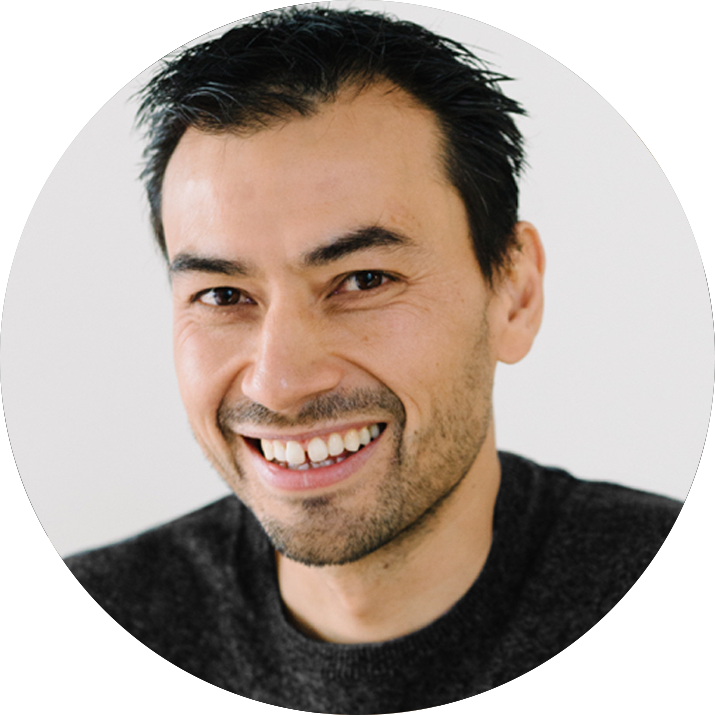 TERENCE TOH
TERENCE TOH
About Us
The Business Coach.
Terence is the founder and Managing Director of StrategiQ Corporation, a serial entrepreneur and experienced business operator who has founded, bought, grown and sold several … see more

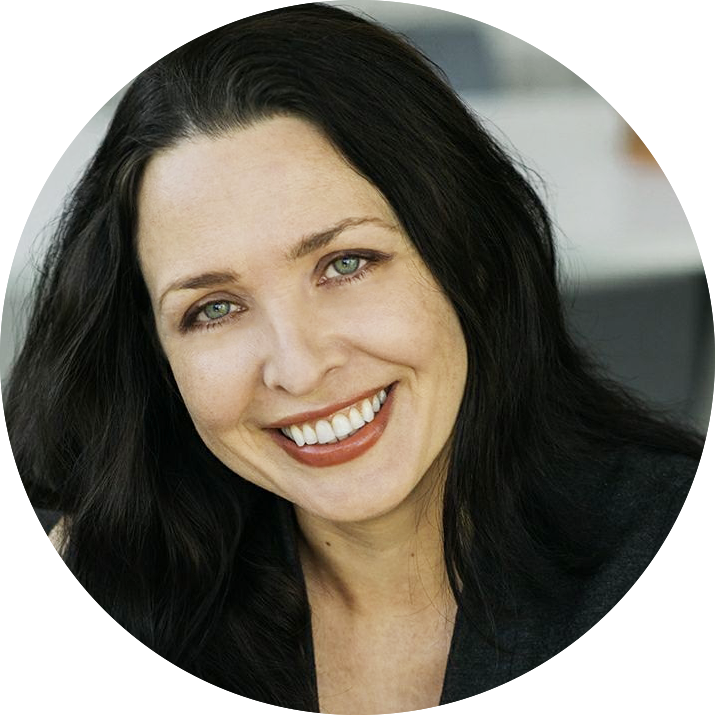 NADIA HUGHES
NADIA HUGHES
About Us
The Super Nerd.
Are you passionate about the ins and outs out of taxation legislation? With Nadia by your side, you don’t need to be. Accounting and financial planning isn’t just her … see more
